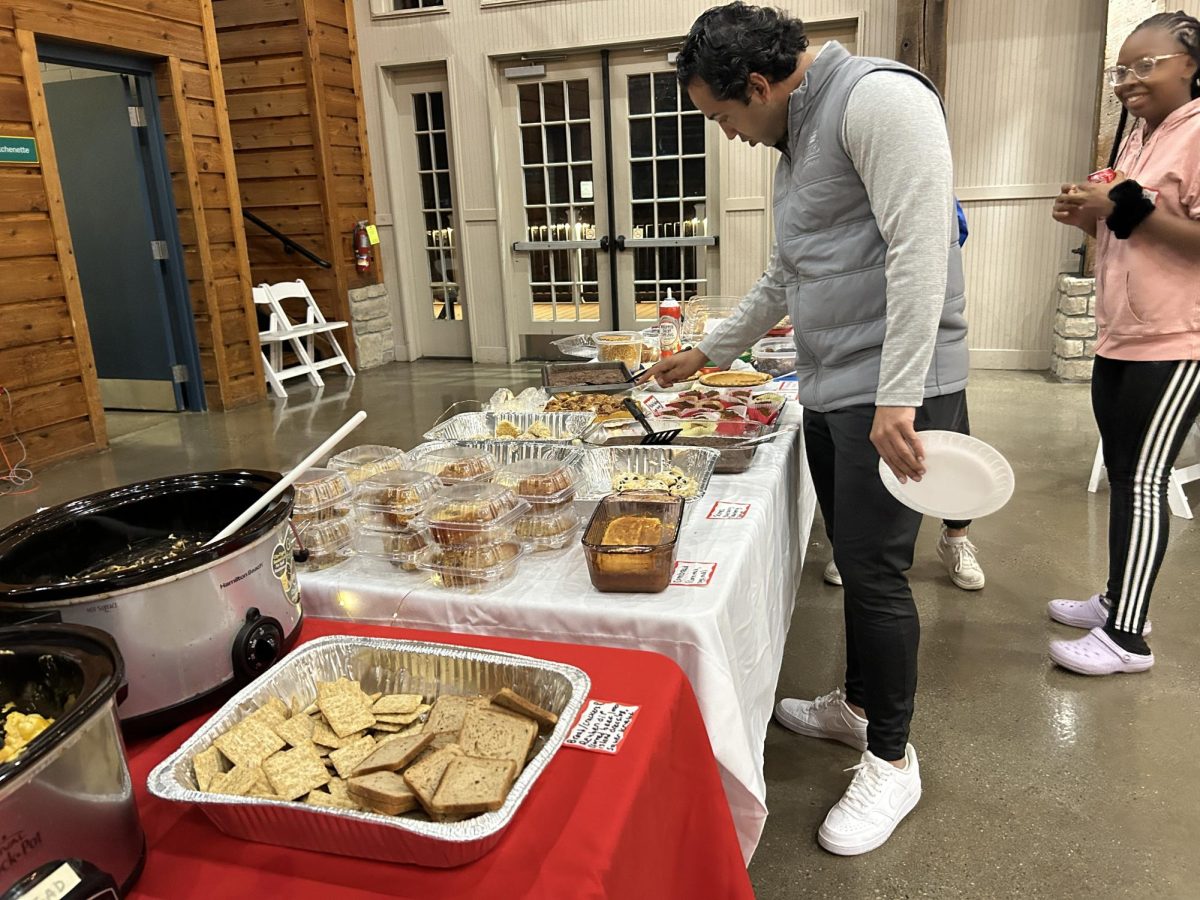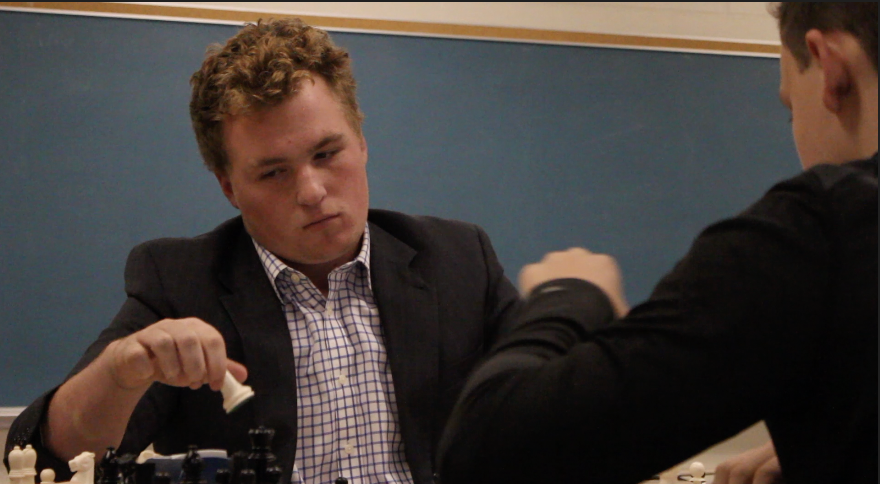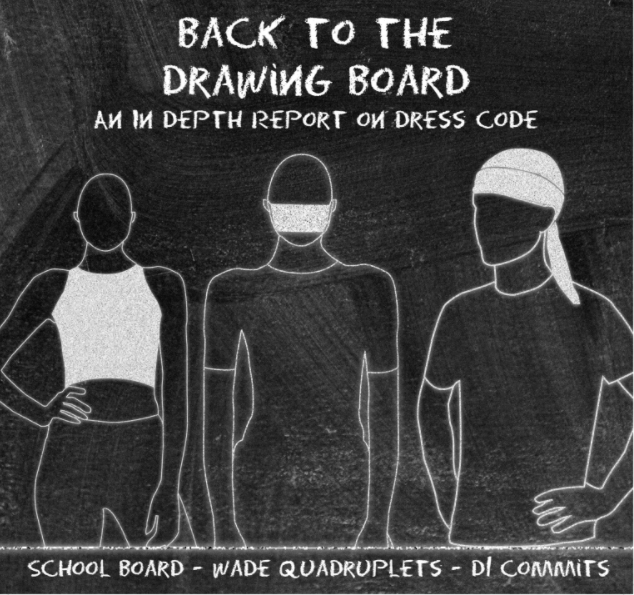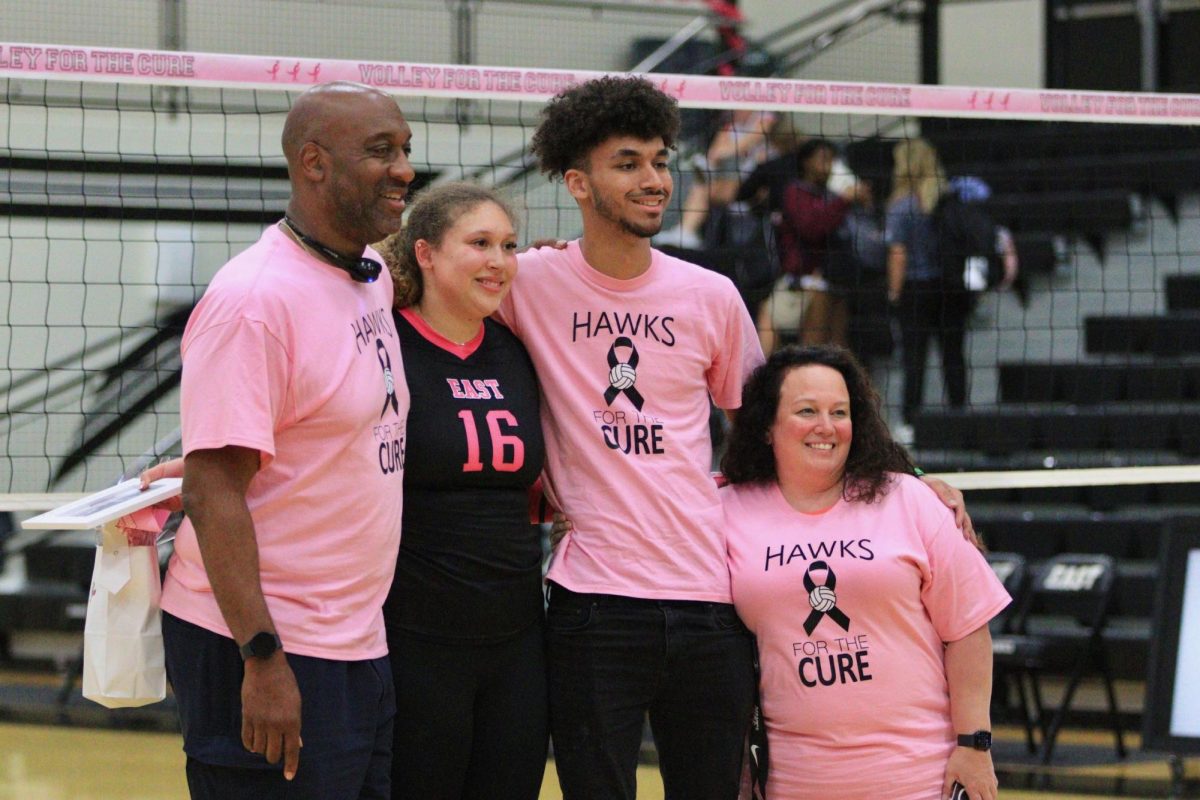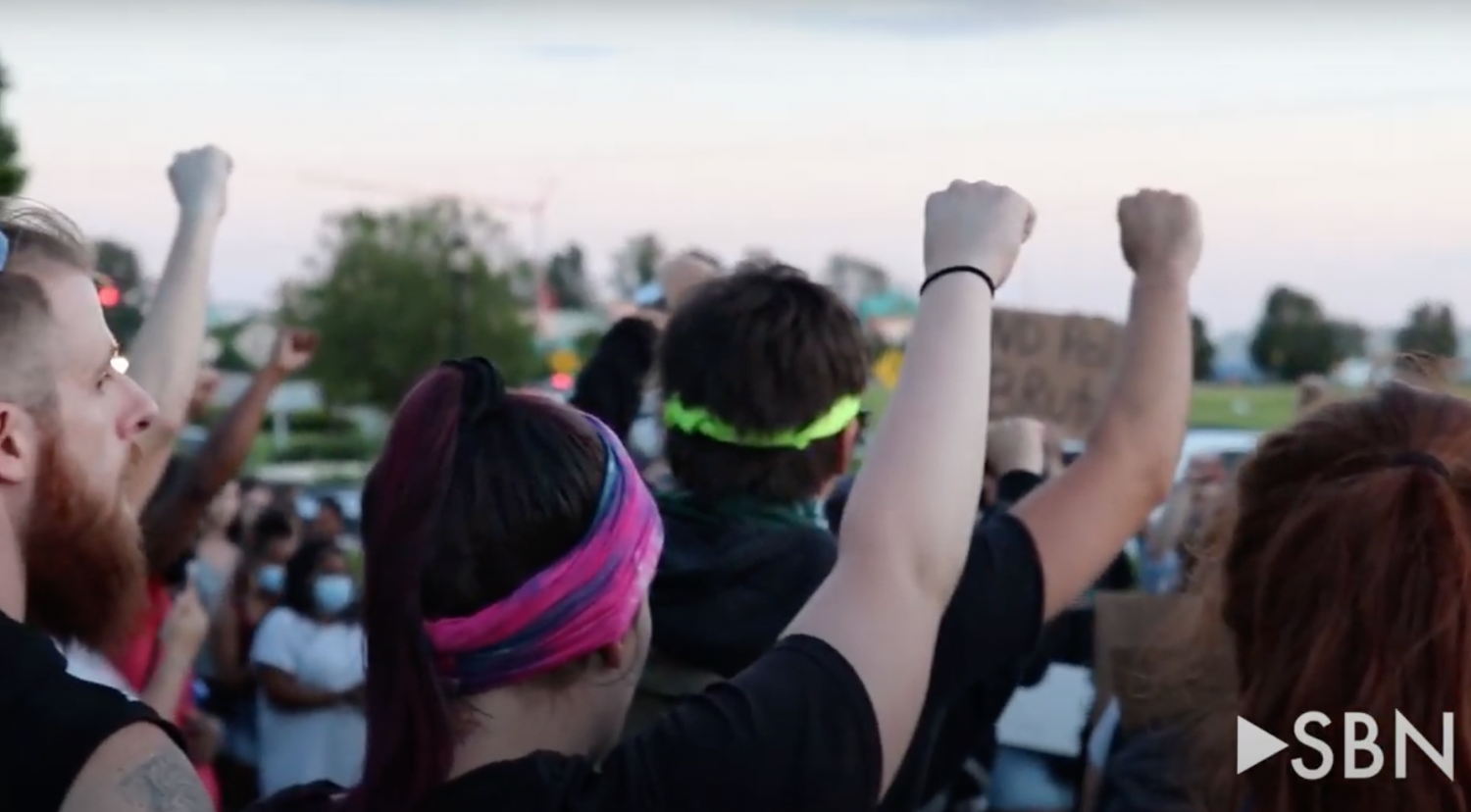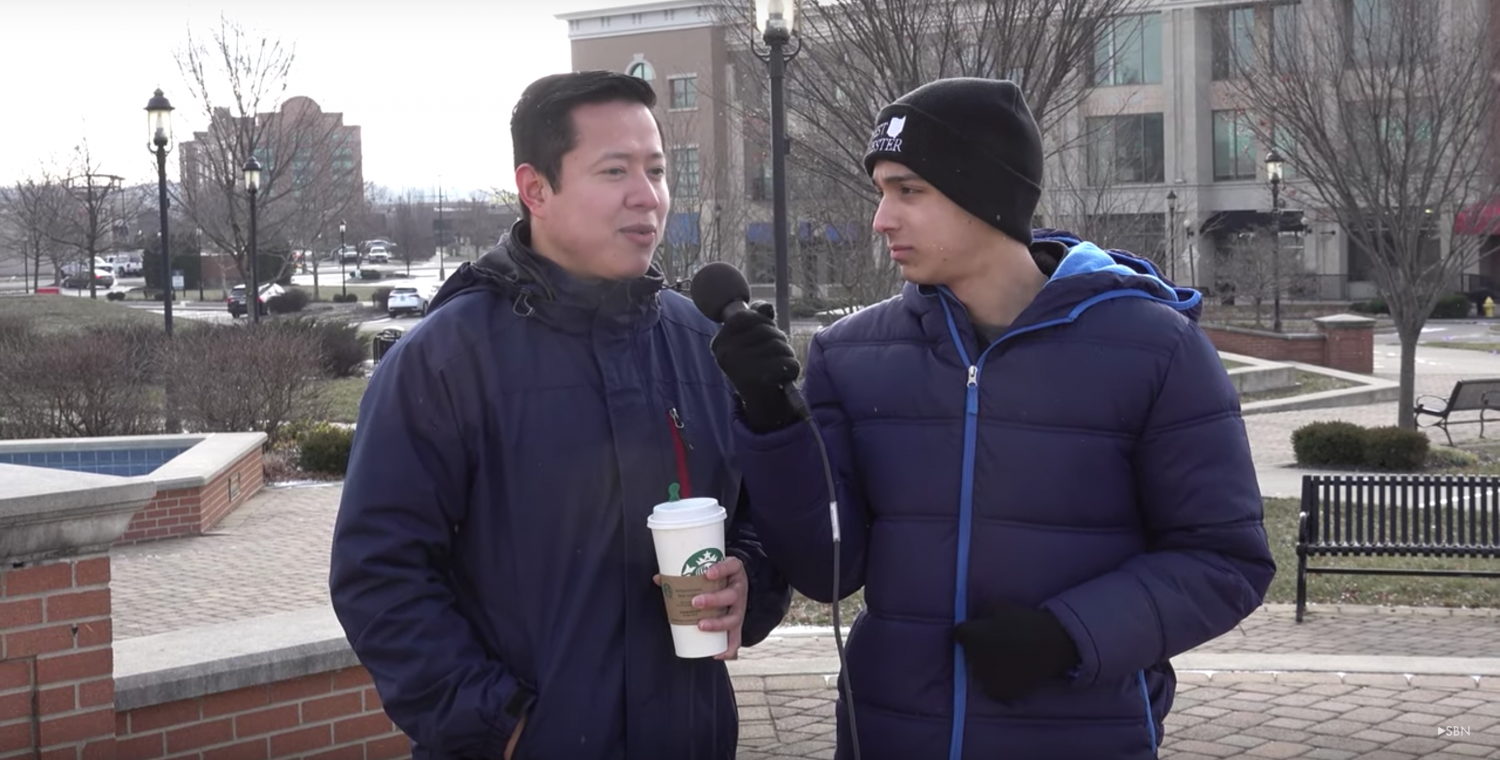By Sophia Spivey | Art by Julia Sanders
As the trial for 20-year-old Brock Turner’s assault began, a letter written by the unnamed 23-year-old victim was read to the jury. His victim wrote that she felt violated and wanted justice for the unforgivable crime that was forced upon her.
According to CNN, Turner was found by two Stanford graduate students raping his unconscious victim outside a fraternity house on Jan. 18, 2015 at approximately 1 a.m. After he was caught, he tried to flee the scene of the crime as the students chased him down. His victim awoke in a hospital where she was made aware of her assault by the press. Turner pled not guilty when he was brought to court and was eventually found guilty with the potential of 10 years in prison; however, he was only sentenced to six months of jail time and three years of probation for his actions.
Turner’s trial is a prime example of rape culture because, even though he was found guilty, he didn’t receive a punishment that fit his crime. He was only sentenced to six months in prison and was released in three. If the justice system worked correctly, he wouldn’t have gotten off so easily; many believe he received such a light sentence because he is white and wealthy
On the other hand, Brian Banks, who now works in the NFL’s Los Angeles office, was wrongfully accused of raping a girl and tried as an adult at only 16. Banks faced 41 years to life in prison. He ended up spending five years and two months in prison and five years in high custody parole before his accuser renounced her claim. The only notable difference in these two trials was that Banks was younger and African American.
“I would say it’s a case of privilege,” Banks said in reference to the Turner case. “It seems like the judge based his decision on lifestyle. [Turner has] lived such a good life and has never experienced anything that would prepare him for prison. What about the kid who has nothing, he struggles to eat, struggles to get a fair education? What about the kid who has no choice who he is born to and has drug-addicted parents or a non-parent household? Where is the consideration for them when they commit a crime?”
Despite the controversy and widespread criticism of this decision, on Dec.18, an independent commission determined that County Superior Court Judge Aaron Persky did not abuse his authority or show bias when he sentenced Turner.
“I take [Turner] at his word that subjectively that’s his version of his events,” Persky said when asked about the reasoning behind his verdict. “I’m not convinced that his lack of complete acquiescence to the verdict should count against him.”
While Turner only served three months in prison, according to sexoffenderattorney.com, the average sentence for sexual assault cases in the United States is eight to nine years. One in six American women have been a victim of attempted or completed rape in their lifetime, according to the Rape, Abuse & Incest National Network (RAINN), and 94 percent of women who were raped were found to have displayed PTSD symptoms during the two weeks immediately following the rape, according to the United States Department of Veterans Affairs.
“I stood there examining my body beneath the stream of water and decided, I don’t want my body anymore,” the victim’s letter continued. “I was terrified of it, I didn’t know what had been in it, if it had been contaminated, who had touched it. I wanted to take off my body like a jacket and leave it at the hospital with everything else.”
According to RAINN, 97 percent of people accused of rape escape from punishment completely, but since there were several witnesses, that would not be the case in this trial. Before Brock’s sentence was announced, his father Dan Turner did everything he could to get his son off with the smallest sentence possible.
“His life will never be the one that he dreamed about and worked so hard to achieve,” Dan wrote in a letter in order to get his son a lighter sentence with probation instead of jail time. “That is a steep price to pay for 20 minutes of action out of his 20 plus years of life.”
The recommended conviction for rapists is between eight and twenty years based on different factors, according to the sentencing guidelines and policies for federal courts established by the United States Sentencing Commission. The factors that affect the recommended verdict are the extent of the victim’s injuries, age of the victim and whether or not they were kidnapped.
Persky was put on the case. Persky came to the verdict that Brock would spend six months in prison so that there would be no lingering impact on him, even after hearing the victim’s side of the story.
“A prison sentence would have a severe impact on him,” Persky said at Brock’s sentencing. “I think he will not be a danger to others.”
Instead of having Brock take responsibility for his actions, Dan goes on to say throughout his letter that it isn’t his son’s fault: it is instead the pressure and influence of upperclassmen.
“In hindsight, it’s clear that Brock was desperately trying to fit in at Stanford and fell into the culture of alcohol consumption and partying,” Dan stated. “This culture was modeled by many of the upperclassmen on the swim team and played a role in the events of Jan. 17 and 18, 2015.”
During the trial, many people, including Brock’s attorney, accused the victim of not having any solid evidence due to the fact that she could not remember the series of events that happened on the night she was raped. Brock was expelled from Stanford, but she lost her sense of security and innocence.
“Your damage was concrete; stripped of titles, degrees, enrollment,” Brock’s victim continued in her letter. “My damage was internal, unseen, I carry it with me. You took away my worth, my privacy, my energy, my time, my safety, my intimacy, my confidence, my own voice, until today.”
Brock never faced the punishment he deserves and he never will, while his victim faces the horror that she was violated, while Banks, an innocent man, paid penance for the same crime which he didn’t even commit. Being rich, white and powerful shouldn’t exempt individuals from being punished for their actions.



